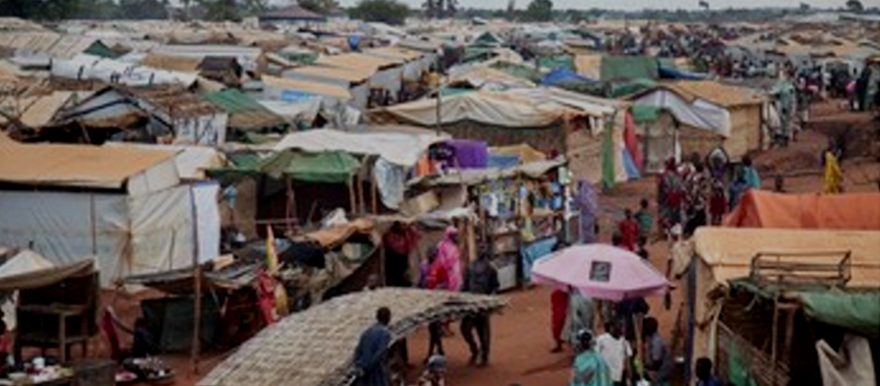Traders in the Western Bahr el Ghazal state capital Wau have faulted multiple taxations by government departments for the soaring commodity prices in the market.
The traders voiced their complaints to members of the state parliamentary committee on economic, finance, and planning last week during their assessment of market prices in Wau.
The committee, headed by Harun Hessen Harun, visited the extensive Jou market where some of the traders told them that the high commodity prices were a result of multiple taxations and a weak local currency among other factors. They also said armed men and multiple checkpoints contributed to the price hikes.
Mohamed Seridin, a merchant in Wau’s Jou market said high taxes imposed by the municipal council has also tremendously added to increased prices.
“There is no businessman who can accept losses. He must put a markup to cushion the tariffs and other expenses he encounters on the road,” he said. “The second thing is that there are many people collecting money inside the market. There is a long list of checkpoints from here to Kuajock. I used to pay over SSP 600,000 on goods and for an empty truck to move from here to Aneet, you need 60,000 SSP.”
Seredin also said that the municipality also often comes up with arbitrary charges and that traders transfer that burden to the consumer through increased pricing.
Another trader, Chol Deng, attributed the soaring commodity prices to high transportation costs.
“For a truck to reach here from Majok at the border with Sudan, it costs SSP 60,000 and on reaching Aweil, you pay SSP 150,000,” he lamented. “The government is seeing all these problems and there are some people who kill and loot travelers on the road if you do not pay money.”
A Wau resident, Mary Ebamba, said she is frustrated by the government’s inability to control rising commodity prices.
“We are now in our country. When will we enjoy life? People are suffering and it is difficult for the ordinary citizen to survive,” she bemoaned. “Sugar is expensive, sorghum is expensive and oil is very expensive. Everything is so expensive. How will we survive in this country?”
She pointed out that the money most of the locals earn is not enough to buy necessities at the current market prices.
“If someone is sick and goes to the hospital, it requires more than SSP 10,000 for treatment. In the market, one should carry SSP 5,000 and above yet a civil servant does not earn such an amount of money,” she said.
The chairperson of the state parliament’s economics committee, Harun Hessen Harun, said the aim of their market assessment exercise was to get first-hand information about the cause of the soaring prices.
“The main purpose of our visit was to understand the reason behind the increase of prices and the reason is that there is increased collection of money from the traders and the inflation of U.S dollar and too many checkpoints along the roads,” he said. “Also, there is money being rampantly collected by either the municipality or revenue authority.”
When contacted, the state’s revenue authority commissioner, Eshaq Mohamed Mapigi, dismissed the allegations made by the traders against his outfit.
“Concerning the allegation of the traders in the market, we only collect revenue based on the state policy passed by the state assembly in 2016 and this law has not been changed, so we are working within the law,” Mapigi stated.
He said the taxes collected by various government agencies are based on different institutional operations.
“In the market, we are a group of institutions collecting taxes in terms of taxes and business profit. In the state, we have the National Revenue Authority (NRA) and the State Revenue Authority, but the NRA only taxes yearly business profit,” he explained. “The State Revenue Authority is not collecting taxes on profits from the traders but we only take a monthly collection from pharmacies.”
Last month, 50 kg of sugar cost SSP 28,000 SSP but currently retails at 32,000 while a 50 kg sack of wheat flour shot up to 32,000 from 26,000. A Jerrycan of oil now goes for 26,000 up from SSP 18,000.
A carton of washing soap was 12,000 now sells at 16,000 SSP, while a 50 kg sack of beans went up from 25,000 to 36,000 and 50 kg sack of rice is now 28,000 from SSP 20,000.
The USD 100 is bought for SSP 59,000 in the black market in Wau town.




